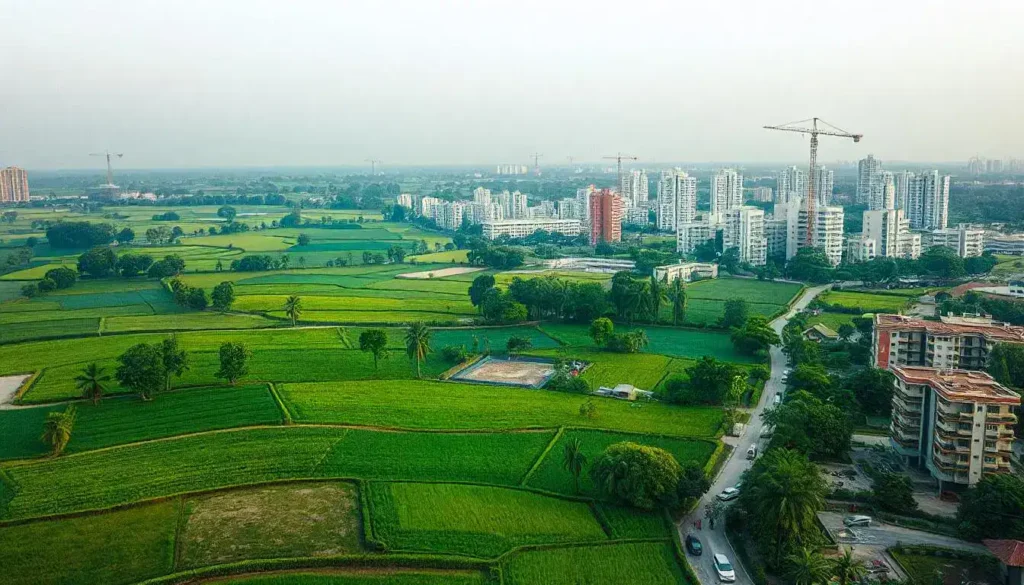Karnataka Government Plans to Confiscate Illegal Layouts on Agricultural Land, Impacting Bengaluru Outskirts

In a significant move aimed at curbing illegal construction and land use practices, the Karnataka government has announced plans to confiscate unauthorized layouts developed on agricultural land. This decision is expected to have a substantial impact on Bengaluru’s rapidly expanding outskirts, where unregulated developments on agricultural plots have become a growing concern.
Over the past few years, the outskirts of Bengaluru, including areas like the Outer Ring Road, Tumkur Road, and parts of Devanahalli, have witnessed a boom in real estate activity. Developers and landowners have frequently converted agricultural land into residential and commercial layouts, bypassing legal protocols and zoning regulations. Many of these illegal developments have led to unplanned urban sprawl, with inadequate infrastructure, poor connectivity, and environmental concerns.
The Karnataka government's new initiative aims to restore order to the state's land use policies and protect agricultural land from exploitation. According to officials, landowners and developers involved in such illegal projects will face penalties, including the confiscation of their properties. The move is being hailed as a step towards sustainable development, ensuring that Bengaluru’s growth remains controlled and within the framework of urban planning guidelines.
This crackdown on illegal layouts could have far-reaching consequences for Bengaluru’s real estate market. Areas that have witnessed rapid but unregulated growth may now face a slowdown, with potential buyers and investors becoming wary of purchasing properties in regions that could face future legal challenges. Additionally, existing developments in these zones may see a dip in value, as buyers seek assurance regarding the legality and stability of their investments.
For the government, this step is part of a broader strategy to prevent the degradation of agricultural land and preserve the city’s green spaces. By enforcing stricter land use laws, the state aims to ensure that the development of Bengaluru’s periphery is done in a more structured and planned manner, with proper infrastructure, amenities, and environmental considerations.
While the move is likely to face resistance from some developers and property owners, it is expected to bring long-term benefits in terms of better land management and urban sustainability. As Bengaluru continues to grow, the challenge will be to balance rapid urbanization with the preservation of its agricultural heritage.
- Lakshadweep
- Delhi
- Puducherry
- PROPIINN
- Arunchal Pradesh
- Assam
- Bihar
- Chhattisgarh
- Goa
- Gujarat
- Haryana
- Himachal Pradesh
- Jharkhand
- Karnataka
- Kerala
- Maharashtra
- Madhya Pradesh
- Manipur
- Meghalaya
- Mizoram
- Nagaland
- Odisha
- Punjab
- Rajasthan
- Sikkim
- Tamil Nadu
- Tripura
- Telangana | Andhra pradesh
- Pulse
- Uttar Pradesh
- Uttarakhand
- West Bengal
- Andaman and Nicobar Islands
- Chandigarh
- Dadra and Nagar Haveli and Daman and Diu
- Jammu and Kashmir
- Ladakh



